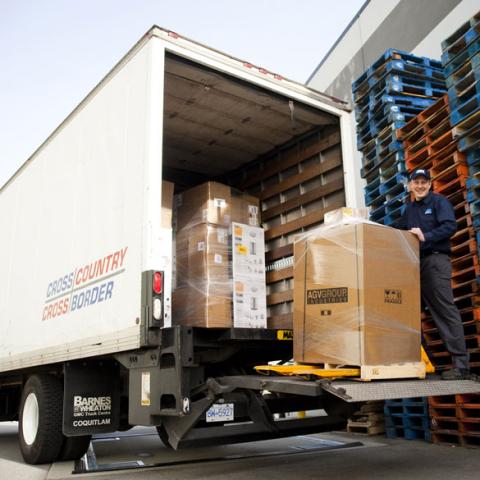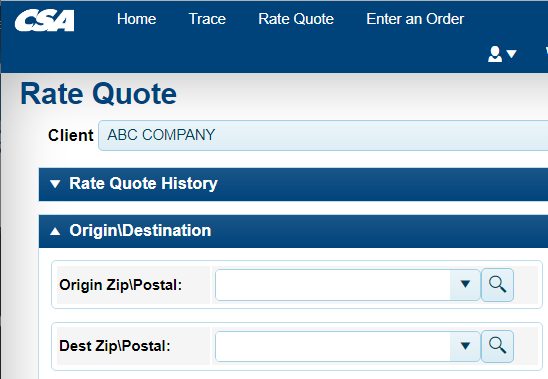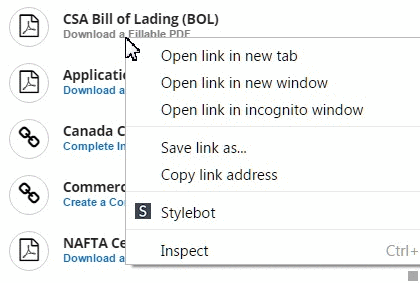Understanding Customs Clearance for USA to Canada LTL Shipping
Your shipment from the U.S. to Canada has been delayed and your customer wants an update. It can feel uncertain at times, but here's some info about Canadian customs clearance so you can manage expectations and keep peace of mind while shipping cross-border.
At CSA Transportation, we've helped many businesses navigate these customs challenges through our LTL shipping in Canada services. After processing over 700 consolidated loads monthly across Canada and the USA, we've learned exactly what causes delays and how to prevent them.
How Long Does Customs Clearance Take? Why Customs Processing Times Vary So Much
Most LTL freight clears Canadian customs within a few hours when paperwork is correct and goods are standard. Delays typically occur when:
- Documentation is incomplete or inaccurate
- Goods require permits or special review
- The shipment is selected for inspection
- Clearance volumes spike during peak seasons
For cross-border trucking, same-day clearance is normal once documentation has been pre-submitted.
What Causes Delays (and How to Avoid Them)
Incomplete or Incorrect Documentation
Missing commercial invoices, misclassified HS codes, or incomplete Certificates of Origin can stall clearance.
Solution: CSA submits all required paperwork in advance through the PARS (Pre-Arrival Review System) so customs can review before the truck arrives.
Restricted or Special Goods
Some products (e.g., food items, plants, pharmaceuticals, hazardous goods) need permits or extra inspection.
Solution: Always confirm requirements with your customs broker before shipping.
Seasonal Congestion
Holiday retail surges and end-of-quarter volumes can overwhelm customs facilities.
Solution: Ship earlier when possible to avoid high-traffic periods.
2025 Tariff Requirements
As of March 2025 (and updated Sept 2025), Canada has implemented 25% tariffs on select U.S. goods such as steel, aluminum, and non-USMCA vehicles. These require strict documentation to prove origin.
Solution: Ensure your HS codes and certificates are accurate to avoid reassessment or fines.
Canada Customs Basics for LTL Freight
LTL shipments are consolidated, meaning one truck carries freight from multiple shippers. This setup creates efficiency and cost savings, but also means that accurate paperwork is essential so the entire load can move smoothly without unnecessary delays.
Key Documents
- Bill of Lading (BOL): Acknowledges freight received and terms of carriage
- Commercial Invoice: Details goods, values, and transaction terms
- Certificate of Origin: Qualifies freight for tariff benefits under USMCA
Systems in Use
- PARS (Canada): Pre-arrival review for faster clearance northbound
- PAPS (USA): U.S. equivalent for southbound freight
Strategies to Keep Freight Moving
| Strategy | Why It Helps | How CSA Handles It |
|---|---|---|
| Pre-arrival submissions (PARS) | Cuts clearance delays | Common industry practice; CSA ensures this is done reliably on your behalf |
| Accurate HS codes | Prevents reclassification | Guidance through broker/CSA team |
| Complete documents | Avoids clearance delays | CSA reviews for completeness |
| Restricted goods screening | Avoids rejection | Verify before loading |
Industry Expert Insight
According to logistics analysts, "failing to comply with U.S. and Canadian customs regulations can result in delayed shipments, financial penalties, and even restrictions on trade." The solution? Proactive preparation and professional guidance.
The Real Cost of Customs Delays
Beyond the obvious inconvenience, customs holds create hidden costs:
Hidden Costs of Delays
- Storage fees accumulating daily
- Demurrage charges from carriers
- Customer satisfaction damage
- Cash flow disruption from delayed deliveries
- Opportunity costs from missed sales windows
For businesses operating on tight margins, a single major delay can wipe out profits from multiple successful shipments.
Get Your Freight Moving Without the Guesswork
Customs delays don't have to be a constant worry. With proper preparation and the right logistics partner, you can achieve reliable clearance times and keep your customers happy.
Why Choose CSA Transportation
At CSA Transportation, we've built our reputation on eliminating customs surprises. Our experienced team coordinates directly with your customs broker so your freight moves on schedule. With strategically located and customs bonded terminals and over 700 monthly consolidated loads, we have the infrastructure and expertise to keep your supply chain flowing smoothly.
Ready to Ship?
Contact our logistics specialists today to learn how our customs expertise can protect your business from costly delays and keep your freight moving across borders with confidence.
Frequently Asked Questions
Typically a few hours to one day. Longer delays usually mean documentation issues or inspection holds.
First, verify all documentation is complete and accurate. Check with your carrier for specific hold reasons. If issues persist beyond 48 hours, contact CBSA directly or hire a licensed customs broker to expedite resolution.
Yes—the CSA Network allows for freight delivery to Alberta easily. We coordinate with your customs broker and submit PARS (Pre-Arrival Review System) so your broker can pre-clear with CBSA, then handle delivery to northern or southern Alberta.
For shippers looking for a trucking company in Edmonton, AB, our local team has been shipping pallets to Alberta since 2010.
Similarly, our Calgary terminal has been in operation since 2006; if you need a trucking company in Calgary, AB, the CSA Network handles U.S. pickup, customs coordination, and final delivery.
Most major carriers provide tracking updates when packages enter and exit customs. However, detailed customs processing status is typically only available through CBSA systems or by contacting customs directly.









